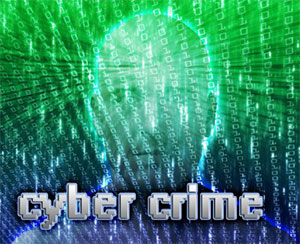
Cybersecurity Defensive Stance Protects Small Business Computers
- By Ginger Hill
- May 23, 2013
I guess if you’re going to be a criminal, choosing the weakest people and situations to prey on seems the  most logical. In fact, this is the current trend for cybercriminals: to prey on small businesses.
most logical. In fact, this is the current trend for cybercriminals: to prey on small businesses.
According to a report from Verizon, of all the sizes of businesses in the economy, small businesses continue to be the most victimized. In 2012, Verizon recorded and verified 621 data breaches with approximately half of the breaches occurring at companies with fewer than 1,000 employees. Of the 621, 193 of the incidents were at companies with fewer than 100 workers.
Unfortunately over the past 6 years, small business cyberattacks have been running rampant, making it a trend in the world of cybercrime. Because larger corporations have taken such a defensive stance against cybercrime by utilizing sophisticated security strategies, cybercriminals are forced to look for other ways to lie, cheat and steal.
Small businesses usually don’t have the budget for big IT departments or to protect every computer used by the business, so cybercriminals are taking the path of least resistance and attacking small businesses. This is rather scary, seeing as though small businesses usually retain valuable information such as credit card numbers.
What are small businesses to do?
I think the first step is to become educated about the tactics cybercriminals are using to attack small businesses. Let’s start now. Here are some of the most common tactics used against small businesses by cybercriminals:
- Small Businesses as Stepping Stones: Cybercriminals target small businesses in growth industries and then patiently wait, hoping the small business will be acquired by a larger corporation. When the merger or acquisition takes place, cybercriminals gain access to breach the system of the larger parent company.
- “Ransomware” Scams: Cybercriminals hack into a small business’ computer system and lock it, demanding a ransom fee from the small business to unlock their system.
- Malicious Software: Cybercrinimals use this to steal information from mobile devices.
- Malware: Cybercriminals use a small business’ website as bait to gain access to the larger company’s database.
The next step is to use these tactics to create an individualized plan-of-defense, based on the niche of the small business. Before a detailed plan-of-defense is formulated, some good rules of thumb are to:
- Create and use strong passwords by including capital and lowercase letters interspersed with symbols;
- Keep antivirus software up-to-date at all times; and
- Do not expose essential business services to the Internet.
Source: http://money.cnn.com/2013/04/22/smallbusiness/small-business-cybercrime/index.html?iid=EL
About the Author
Ginger Hill is Group Social Media Manager.